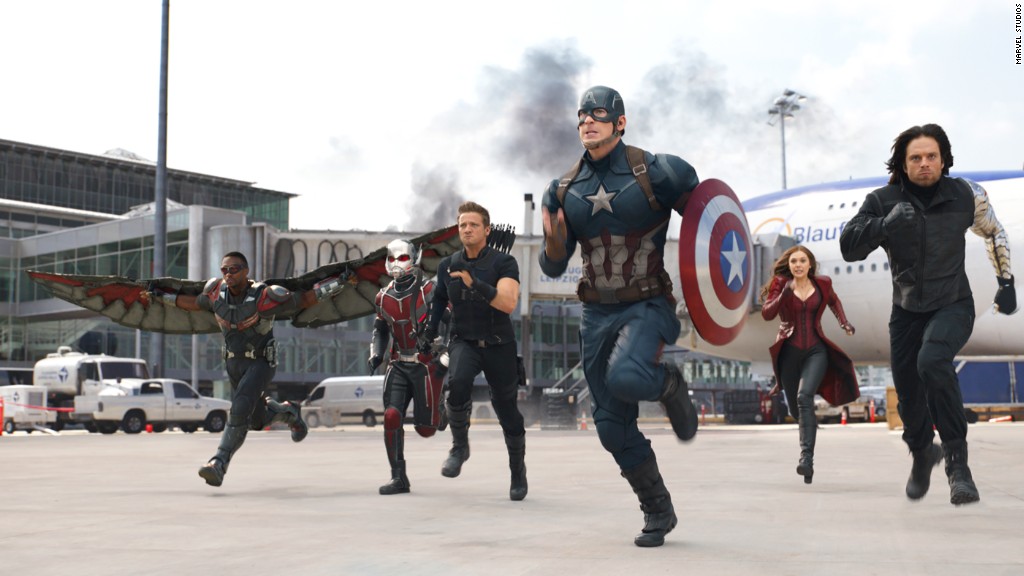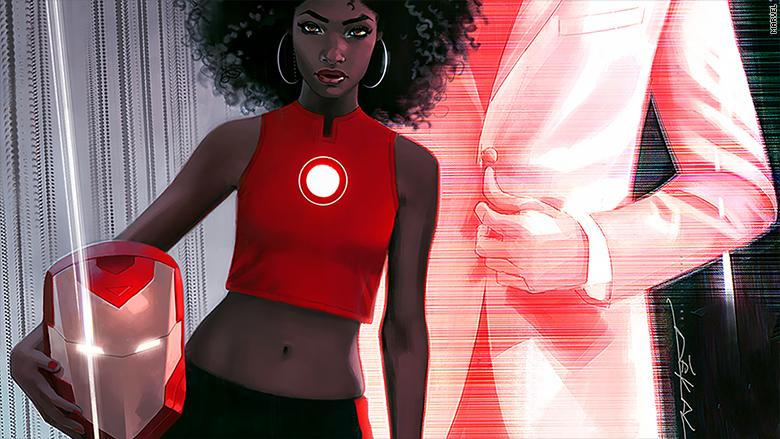
Thor has become the goddess of Thunder, Ms. Marvel is Muslim, and the Iron Man suit is about to belong to an African-American girl.
Marvel's announcement Wednesday that a character named Riri Williams will debut as the new Iron Man in the fall was just the latest move the company has made in recent years to diversify the ranks of its most prominent characters, including changing the gender and race of some of the most beloved.
CNN spoke with Marvel's director of content and character development, Sana Amanat, to get an inside look at why and how the company has diversified its iconic heroes. The conversation has been edited for length and clarity.
Captain America is African-American, Spider-Man was a black Hispanic teen, and now Riri Williams is Iron Man. Why is it important for Marvel to have a diverse cast of heroes?
Well, we always say that Marvel is the world outside your window. I think we have a history of having diverse characters across the board, but for us it's important that our powerhouse superheroes are really representative in a real, authentic way of how the world actually looks.
What we've been doing over the last few years has come from a very natural and organic place. We didn't go into it saying say, 'hey, by the way, we need to make sure that we are putting minority characters in these really big roles.' I think we just found an opportunity to tell really interesting stories with these specific characters.
But taking a step back from that, it's also just a reminder that these characters have these messages behind them and these aspirational qualities. We want to remind people that anyone can pick up that mantle. Captain America is not a race, Captain Marvel is not a gender. We want to make sure that it's about the ideas and what they represent.
How does making Iron Man a young African American woman change the character's story?
In some ways, I think it's essentially the same to an extent because it's really about someone taking the natural skill that they've been given, and in terms of Riri her intellect and genius, and making something with it.
On the other end of it, of course she has a very different background and experience than Tony Stark has had. I think she comes from a much more sort of grounded point of view of the world. She did not grow up with a silver spoon in her mouth. She also has very different goals for what she wants with taking on the armor.
It really comes down to the personality of Riri Williams more than anything else. I love the concept of a woman climbing into the armor and kicking butt. That's a really powerful image for me.

Related: The new 'Iron Man' is a black woman
What has the reaction been to having her take over as Iron Man?
I think it's been pretty positive. People get excited when we try to play with our characters a little bit. There's always going to be people out there that are going to be upset that we're changing a classic character in some sense. But when people react negatively that means that they care, and when they react positively that means we have the opportunity to tell a more creative story. Overall, it's been great.
Is it a sign of the times that over the last decade Marvel has diversified its major heroes? Is Marvel art imitating life?
I think so. There has been this dialogue happening simultaneously about the importance of inclusivity in everyday life, not just in the media and pop culture. That is something that people are clamoring for and have been clamoring for, and I think the way we connect with stories is extremely empowering, extremely edifying. For us, we realize the importance of making sure we talk about what's happening in the world today.
As much as we are a world of superhero stories, I think we connect with people because of the metaphors that we're sharing with them.
Do you feel that having more diversity in comics is ultimately bringing a bigger audience to Marvel?
Most definitely. Seven to nine years ago, we did not have the roster in terms of even female led comics out there. Now, we're up to about 20 female led comics. That is a big sign of how the times have changed. We didn't have them before because we couldn't sell them, quite frankly. There's been more of an awareness of the Marvel brand and the Marvel characters globally, and we've been able to experiment with a really rich library of heroes.
Simultaneously, it's opened a lot of doors. When we were putting out Ms. Marvel [Kamala Khan, who Amanat was a co-creator of], we knew that this was an amazing opportunity to have people come into comic shops, and not just because they were excited about the character, but because of what they represent and what it means. That's what we saw, and that's what we continue to see.


